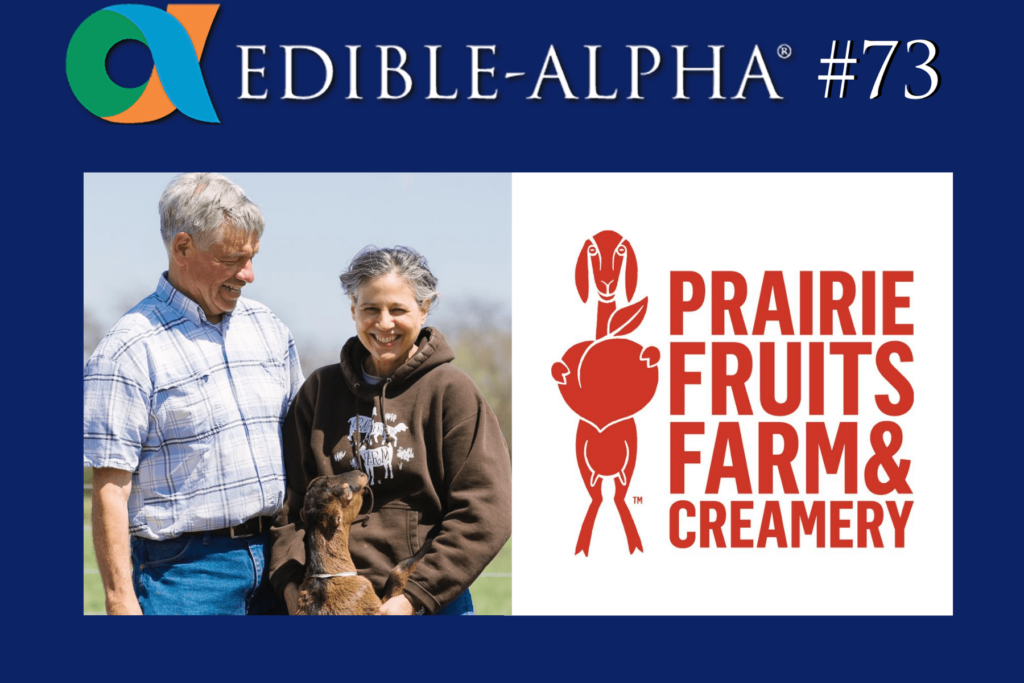Subscribe: Apple Podcasts | Spotify | Amazon Music | iHeartRadio | RSS | More
In Edible-Alpha® podcast #73, Tera chats with Leslie Cooperband and Wes Jarrell, Ph.D., co-founders of Prairie Fruits Farm & Creamery in Champaign, Illinois. The Animal Welfare Approved farm and farmstead is home to an organic fruit orchard and more than 100 milking goats that graze and browse on a diverse landscape. They also make and sell goat cheese and gelato onsite and run a thriving agritourism business.
Both soil scientists, Leslie and Wes left Madison, Wisconsin, in 2003 to pursue their dream of sustainable farming. They purchased seven acres of soybean and corn land in central Illinois and transformed it to organic fruit orchards, pastures and hay fields. Starting a goat farm and creamery from scratch was challenging, as Illinois doesn’t have the dairy culture or expertise that America’s Dairyland does. But the resourceful duo made it happen. They became the state’s first licensed farmstead dairy in 2005, beginning with just four goats and growing their herd as they expanded acreage.
In 2008, Leslie and Wes added a commercial kitchen to the farm, plus a 15-acre grass-legume-forb pasture. And because goats are natural browsers that love choices, they restored one piece of land as prairie and turned another into a woody browse filled with silver maple, honeysuckle, honey locust, willow, poplar and a diverse understory. The property is a work in progress, but once finished, Prairie Fruits Farm & Creamery will have close to 20 acres and 16 paddocks for the herd to rotate through.
This is definitely not the easiest way to raise goats for dairy. But Leslie and Wes aren’t interested in easy. Their commitment to silvopasture, a type of agroforestry that intentionally integrates trees, pasture and rotationally grazing livestock, is rooted in doing what’s best for their animals, for the quality of milk they produce and for the planet. Along with giving the goats a nutritionally varied diet, this regenerative farming method helps enrich the soil, sequester carbon and prevent erosion.
While other progressive farmers are adopting silvopasture, Leslie and Wes don’t know of anyone else doing it with goats. This is all an experiment. Over the coming years, they will monitor the soil health, track which tree and plant species the herd responds to and see how the landscape evolves. They are hoping their project attracts other researchers and entrepreneurs to join in.
Prairie Fruits Farm & Creamery practices total transparency in everything they do. That’s a big reason why they invite people onto their farm for tours, classes and farm-to-table dinners and to enjoy fresh-made cheese and gelato. The COVID-19 pandemic has halted the dinners and events for now, but the farm and creamery remain open and they still sell their products at farmers’ markets and wholesale.
Tune into the full podcast to learn more about these silvopasture pioneers and how regenerative agriculture can yield business opportunities.

